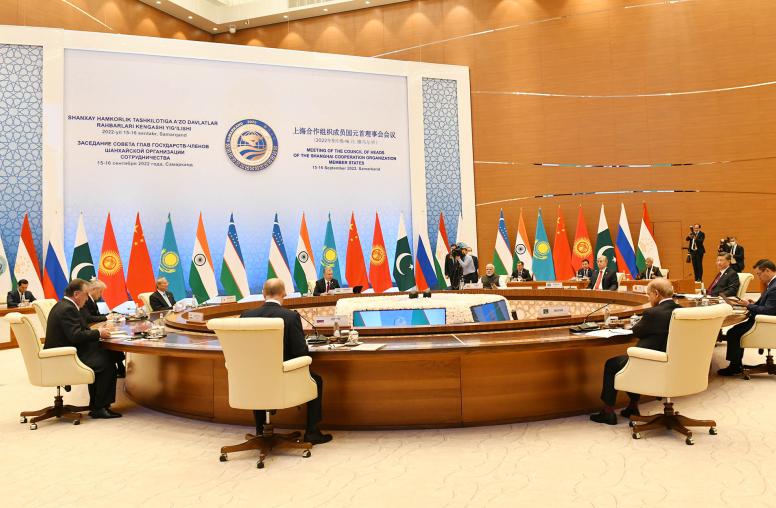 Uzbekistan
Uzbekistan
Featured Research & Analysis

Amid Central Asia’s Struggle with Extremism, Uzbekistan Promotes Pluralism
An Islamic State affiliate’s recent terror attacks in Russia, Iran and Afghanistan rang alarm bells in Central Asian capitals. Almost all the perpetrators of ISIS-Khorasan’s (ISIS-K) attacks were citizens of Central Asia, rekindling considerable concern over the threat of homegrown violent extremism in the region.

What Does Further Expansion Mean for the Shanghai Cooperation Organization?
Last week, foreign ministers from member-states of the Shanghai Cooperation Organization (SCO) gathered in Astana, Kazakhstan. The nine-member SCO — made up of China, India, Russia, Pakistan, Iran, Kazakhstan, Kyrgyzstan, Tajikistan and Uzbekistan — represents one of the largest regional organizations in the world. And with the SCO’s annual heads-of-state summit slated for early July, the ministers’ meeting offers an important glimpse into the group’s priorities going forward. USIP’s Bates Gill and Carla Freeman examine how regional security made its way to the top of the agenda, China’s evolving role in Central Asia and why SCO expansion has led to frustrations among member states.

New Central Asian Leaders Look to Balance Relations with Major Powers
For the first time ever, all five presidents of the Central Asian republics (Kazakhstan, Kyrgyzstan, Tajikistan, Turkmenistan and Uzbekistan) met in-person with a U.S. president as part of “C5+1” summit on the sidelines of last week’s U.N. General Assembly.